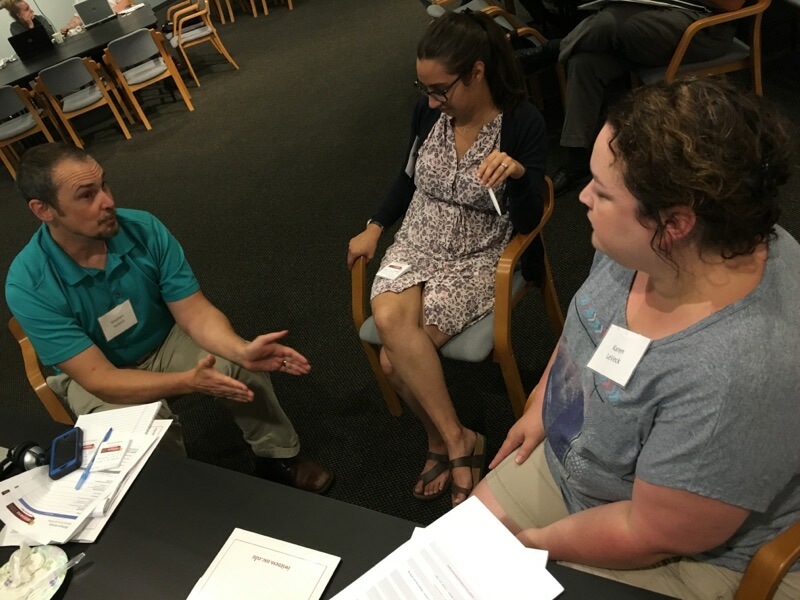Michigan Hosts First ITeach Institute

Detroit-area educators are in the midst of a three-day ITeach Institute to develop their knowledge and skills for teaching with IWitness. The institute, the first of its kind in Michigan, is part of USC Shoah Foundation’s IWitness Detroit program.
IWitness Detroit is a two-year effort by the Institute that provides teacher education, programming for students, and academic resources to engage students in learning through testimony and deliver a multimedia educational experience. The program is sponsored by the Ford Motor Company, which was also the sole sponsor of the 1997 NBC broadcast of “Schindler’s List,” the film that inspired the establishment of the Institute.
The ITeach Institute is Aug. 15-17, 2016, at the Holocaust Memorial Center in Farmington Hills. It is led by Brandon Barr, USC Shoah Foundation education regional consultant in the United States. Thirty middle- and high school educators from counties in the Detroit area were recruited to participate in the program.
On the first day of the institute, the educators received an overview of the Visual History Archive and IWitness. After completing an IWitness activity, they constructed their own Mini Lessons – the newest type of activity in IWitness. Each Mini Lesson is focused on developing a particular skill or concept by showing students a clip of testimony and having them respond to it.
The second day of the institute was focused on IWitness content development and student impact. Educators brainstormed ideas for new multimedia activities and began building them in IWitness, with consultation from Barr and each other.
The third and final day gave educators time to finish building their activities and also learn about the IWitness video editor and how to ethically edit testimony clips. The institute concluded with an opportunity for the participants to share their work and reflect on what they have learned over the past three days and what they’ll continue to do in their classrooms.
During their time at the Holocaust Memorial Center, the teachers were interviewed about why Holocaust education is so important, and how it can make an impact on their students.
Brian Zezula, a world history/US history teacher at Clarkson High School, said it’s important to disrupt students’ idea that if “everybody’s doing it,” there’s no reason to resist and do the right thing.
“The key is it’s not everybody. It’s not everybody is doing bad things,” Zezula said. “And [in the Holocaust] you learn stories of hope and courage; not everybody ignored what was going on. There were people who stood up.”
Jennifer McVicar, visual and performing arts teacher at Butcher Educational Center Middle School, was especially drawn in by the testimonies from the Visual History Archive she watched during the ITeach Institute. She believes that testimonies can help students connect more personally with Holocaust victims and survivors, developing a greater understanding of how the Holocaust could have happened and how it affected ordinary people.
“Hearing a person telling their testimony, there’s nothing else [students] can connect with like that,” she said. “They need to feel what was happened and they need to feel empathy toward other people.”
Several more ITeach seminars in Michigan are scheduled for the remainder of 2016 and early 2017. There has already been significant interest in the seminars, partly due to the passing of Michigan House Bill 4493, which went into effect June 14 of this year. The bill mandates that public school’s social studies curriculum for grades 8-12 “include age- and grade-appropriate instruction about genocide, including, but not limited to, the Holocaust and the Armenian Genocide.”
The seminars will be held in Macomb County on October 6, November 30, December 7, February 8 and April 19; in Waterford on October 15 and 31, January 14, and February 7 and 11; and in Detroit on December 8 and February 6.
Go to USC Shoah Foundation’s Instagram profile for behind-the-scenes photos and videos from the ITeach Institute.
Like this article? Get our e-newsletter.
Be the first to learn about new articles and personal stories like the one you've just read.